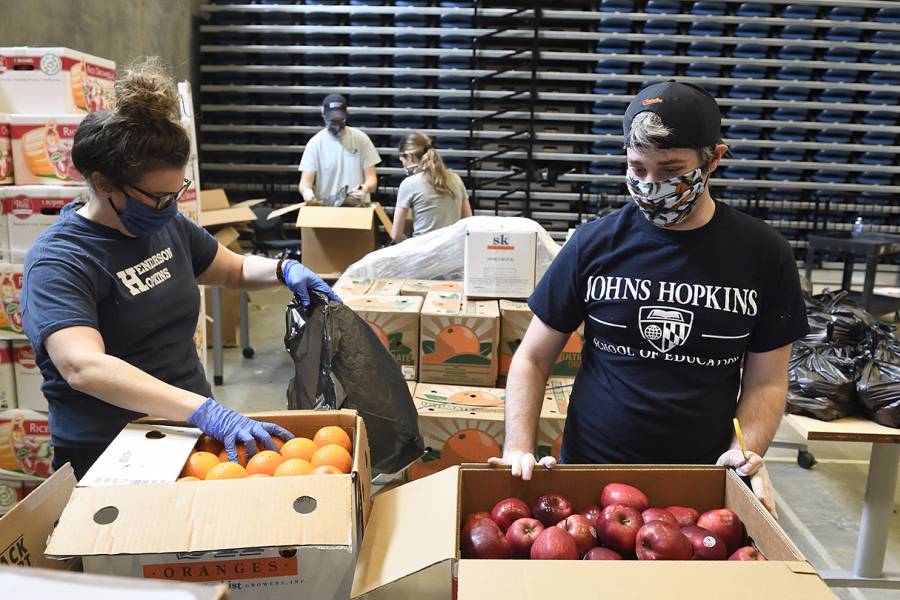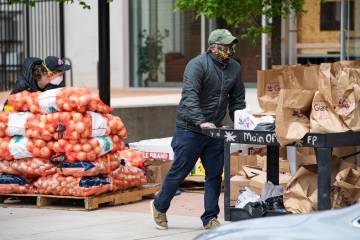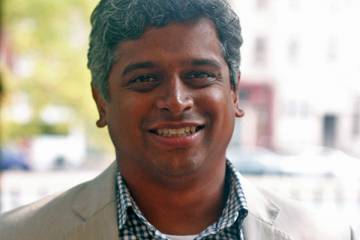Fielding children's questions about the coronavirus pandemic is a delicate task, acknowledges Tamar Rodney, a Johns Hopkins School of Nursing professor who specializes in trauma.
"Always be truthful. There will be times when we do not know the right information to give," Rodney told parents during a recent virtual town hall for the Henderson-Hopkins School. "It's perfectly fine to say, 'I don't have that answer right now, but I will find out for you.'"
In the online session in May, Rodney offered Henderson-Hopkins families tips on how to support children's mental well-being through the stresses of the pandemic. The next speaker was Nyki Robinson of Black Girls Vote, who encouraged the school community to take part in Baltimore's primary elections, detailing the process for mail-in ballots.
Henderson-Hopkins, a K-8 school in Baltimore's Eager Park neighborhood, has hosted five of these virtual events since April, providing school updates, sharing COVID-19 health and wellness information, and conducting Q&As. At a time when the school community is formless and dispersed, the town halls every other Wednesday have provided a central touchpoint for Henderson-Hopkins parents and grandparents.
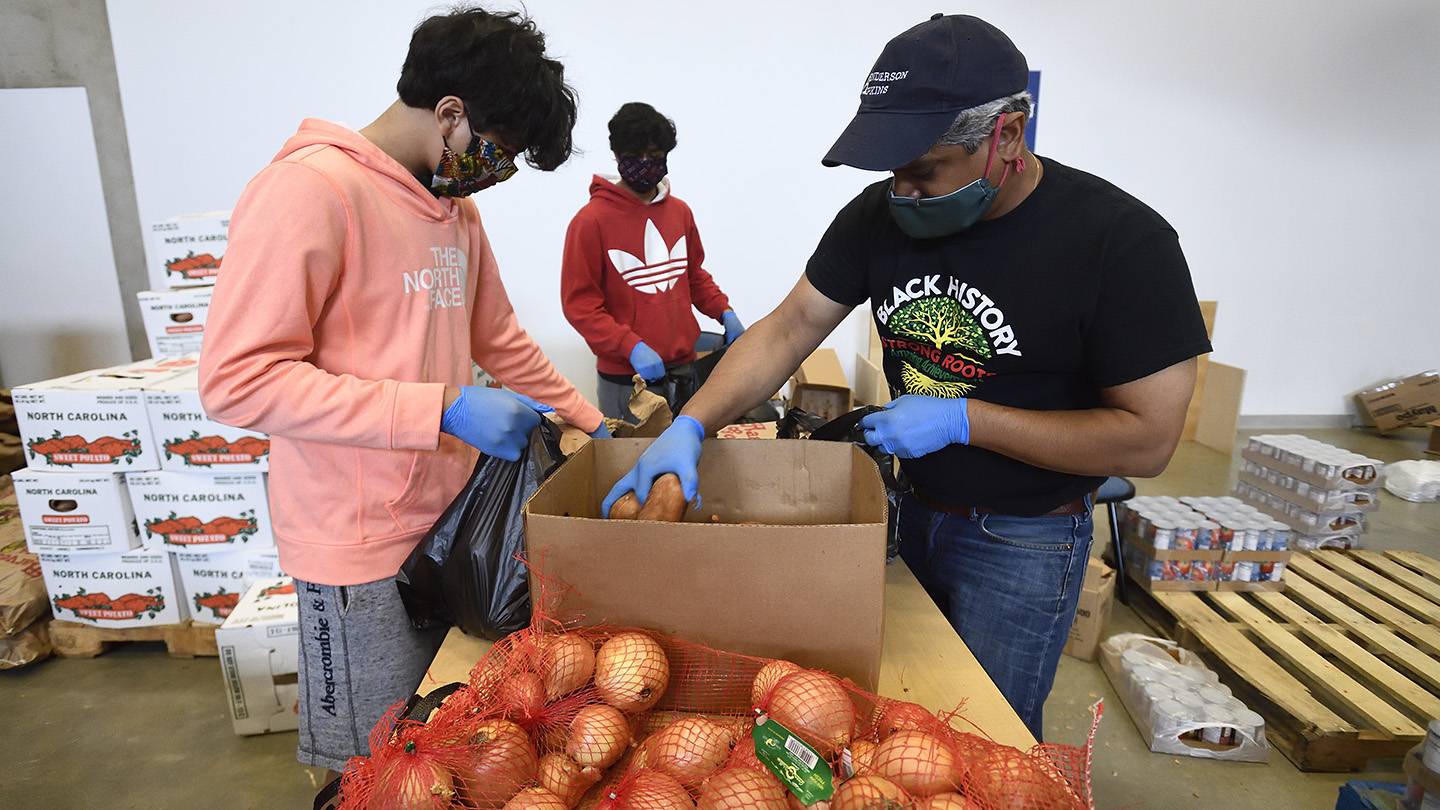
Image caption: Henderson-Hopkins principal Peter Kannam and two volunteers pack food into boxes for distribution among community members in need
Image credit: Will Kirk / Johns Hopkins University
"This is a way for us to stay engaged and connected," says Tameka Suber, the school's PTA president. "The town halls aren't just 'here's what's happening at Henderson-Hopkins;' they're educational and informative, and parents get the chance to chat and ask questions."
School counselor Evan Velleman has worked with the Johns Hopkins School of Nursing—including assistant professor Lucine Francis—to arrange the expert speakers.
"We realized this was a great opportunity to provide COVID-related health information," says Velleman, who graduated from JHU's School of Education in 2018 with a master's degree in counseling.
Francis, who serves as faculty liaison between Henderson-Hopkins and the JHU School of Nursing, says more than 80 families have participated each time. "We've seen that parents do want to connect virtually," she says. "You aren't going to get those numbers even when you're conducting a physical meeting."
The virtual connection is one arm of Henderson-Hopkins' layered response to the coronavirus pandemic since it closed its building in mid-March and switched to online instruction for its 560 students.
"We were not about to compromise anything," vice principal J.D. Merrill says. "We weren't about to just shut down."
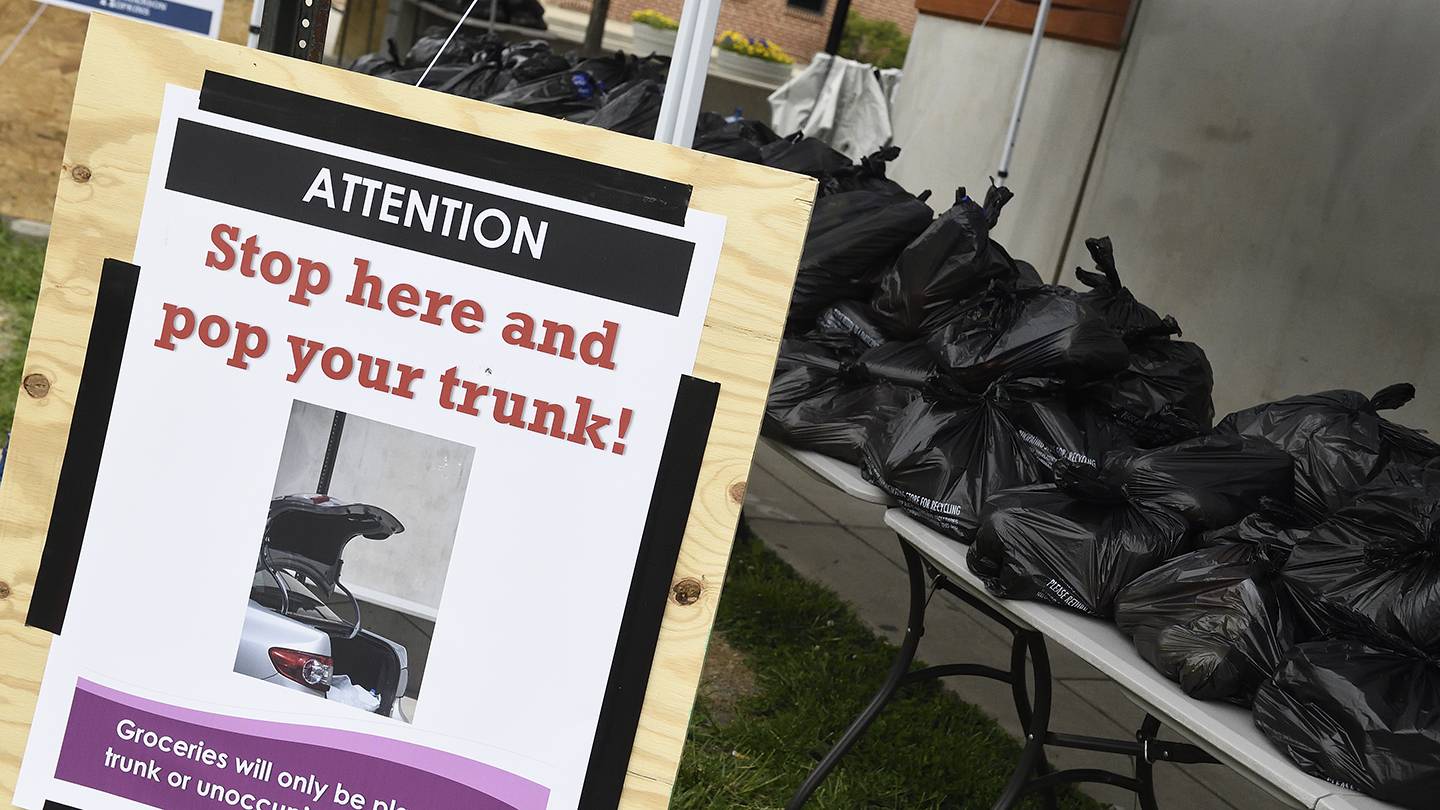
Image credit: Will Kirk / Johns Hopkins University
Among its efforts, the Baltimore City contract school—operated by the Johns Hopkins School of Education in partnership with Morgan State University—has distributed free laptops on loan to students, delivered meals to school families, and offered virtual counseling sessions. Henderson-Hopkins has also acted to serving the broader community in East Baltimore, partnering with local groups to host a weekly food distribution program every Friday. The program has provided more than 2,500 families with more than 84,000 pounds of groceries and 17,000 frozen meals to date, according to Merrill.
"It's been very demanding and very busy," school principal Peter Kannam says. "We need to balance providing the best possible education we can virtually with health concerns and community food demand, and the current issues of racial injustice. It's a lot of people-to-people issues, and we're doing it all remotely."
But, Kannam says: "We're trying to be a beacon of hope and optimism. Our big message is, 'Let's help each other, let's love each other, let's take care of each other.'"
Johns Hopkins University has supported many of the school's efforts, providing funding for laptops and the launch of the food distribution drive, as well guidance from the Consortium for School-based Health Solutions and expertise from the School of Nursing.
Velleman consulted with the nursing school to create bewell-henderson.hopkins.org, a collection of COVID-19 resources for the school's staff, parents, and grandparents. One offering is an "Ask a Nurse" hotline created specifically for Henderson-Hopkins families, connecting them with registered community nurses.
Though the school year ends June 15, Henderson-Hopkins plans to continue with many of these efforts through the summer—or however long is necessary to support families through the pandemic, Kannam says. He's working to extend the food distribution program through August.
Suber, the PTA president, says the school's response has made her proud to be part of this community.
"Even through this period where you think we're not going to be as close, I feel we're closer than ever. Good people are doing good things behind the scenes, and they're doing it for love," she says. "None of us knew this was going to go on this long, and I was thinking everybody's energy would dwindle out. But it so has not."
Posted in University News, Community
Tagged education, henderson-hopkins school, baltimore city, coronavirus, covid-19




